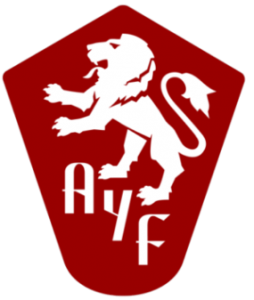Solidarity and Possibility: Defeating the Big Fish
This week we preview the Summer 2009 issue of the Armenian Youth Federation’s quarterly publication, Haytoug. The upcoming issue will focus on the theme of solidarity between peoples and causes. Visit the AYF Booth at the Navasartian Games (July 2-5) to pick up a free copy. It will also be available at community centers, schools and local Armenian book stores.
You can also download it in PDF today or Sign up for a free subscription.
Below we present the Haytoug Editorial:
Solidarity and Possibility:Defeating the Big Fish
 Human nature is often described as self-interested, egotistical and insular, where individuals do not have concern for anything outside of the realm which directly affects them. While it may seem logical and prudent for everyone to put their heads down and focus solely on their immediate desires, this is not the way to achieving positive and tangible change on any level. The attitude described above leads to the creation and intensification of dividing lines among people that should otherwise be unified.
Human nature is often described as self-interested, egotistical and insular, where individuals do not have concern for anything outside of the realm which directly affects them. While it may seem logical and prudent for everyone to put their heads down and focus solely on their immediate desires, this is not the way to achieving positive and tangible change on any level. The attitude described above leads to the creation and intensification of dividing lines among people that should otherwise be unified.
For Armenians the need for solidarity exists on three distinct levels: amongst ourselves, with the struggles of our local American communities and within the sphere of transnational social issues and persecuted minorities.
Armenians in general need to make a much more earnest effort to communicate and coordinate with one another; especially regarding core national issues which are inarguable. For far too long, divisive, skeptical and outdated mindsets have laid obstacles, preventing full cooperation. It’s high time we realize the importance and value of every active and motivated community member in matters which really matter.
Furthermore, as a Diasporan population we must mobilize ourselves to get involved in local issues that impact the areas which we inhabit—anything from movements advocating environmental consciousness to immigrant rights movements and the fight against local racism. Even in a diverse city like Los Angeles, we see intolerant and xenophobic sentiments expressed against Armenians. Hearing radio show hosts joke about “finishing what the Turks started”, or reading columns by school teachers who feel entitled to deride students for trying to maintain their culture and help their community, to experiencing a police department riddled with chauvinistic officers who stereotype and characterize civilians, shows that our plight is not much different from what Blacks, Hispanics, Asians or any other minority group have gone through or continue to go through.
On a global level we must remind ourselves that issues such as genocide, oppressive labor practices and foreign domination—which are issues that have profoundly affected Armenians– affect the entire human race and people from all walks of life. We see that the same aggression carried out against the Armenian people by Turkey has also been repeatedly committed against the likes of the Greeks, Assyrians, Kurds, and even dissenting Turks. Thus, our call for justice is part and parcel of this broader struggle to, once and for all, put an end to the brutality of the Turkish state. This naturally aligns our cause with that of the Kurds. Of course, the movement for recognition of the Armenian Genocide has always been propelled by the understanding that failing to recognize past injustices will only contribute to history repeating itself. Thus amplifying the urgency with which we must speak out and take action against the current genocide in Darfur, in an effort to stop current and future atrocities.
When approaching Armenian issues from these perspectives, one that draws connections rather than divisions with other peoples, you lay the groundwork for solidarity and future collaboration. Such collaboration is important not only for the intrinsic moral value it wields but also for the broader bases of strength it can help build in achieving serious progress. The pooling of resources and collective power that is gained from coalition building should never be underestimated. In addition, allying with other groups has always been one of the ways Armenian activists have learned more about themselves and gained valuable skills for pushing our own movement forward.
Although we have a unique obligation to, first and foremost, serve our community, we also owe it to ourselves to stand with one another and to stand with others struggling against oppression.
Through solidarity we can prove the old proverb, “big fish eat little fish” to be wrong.


Leave a Reply
Want to join the discussion?Feel free to contribute!